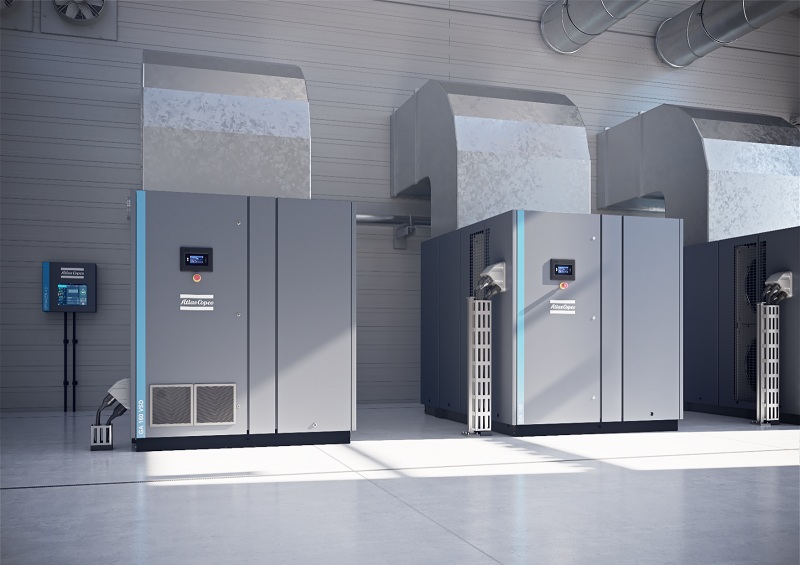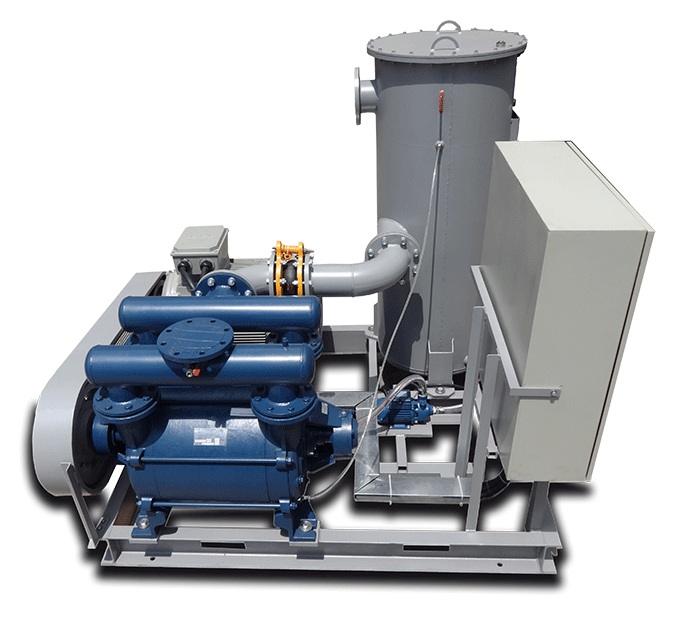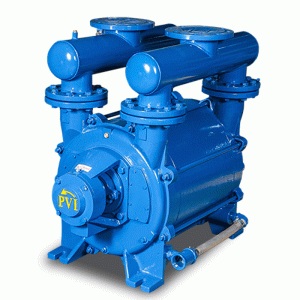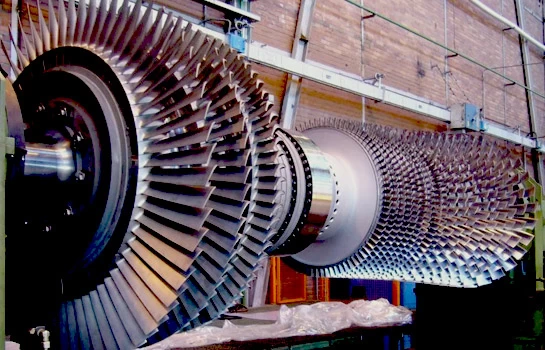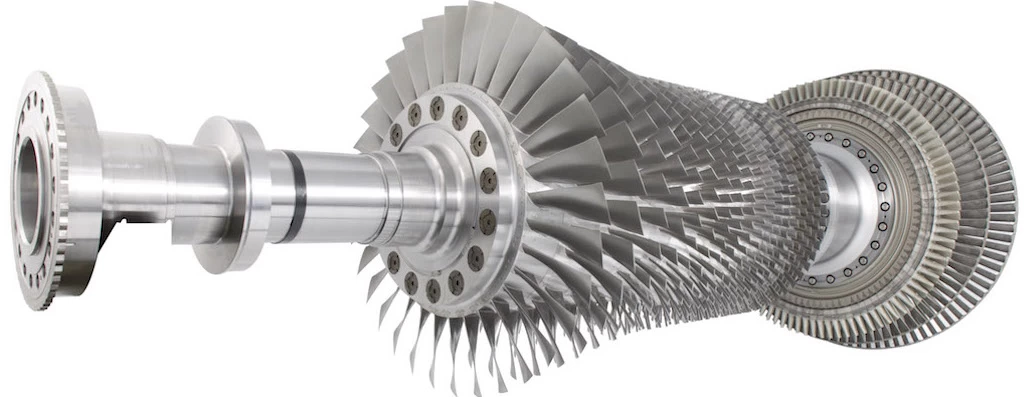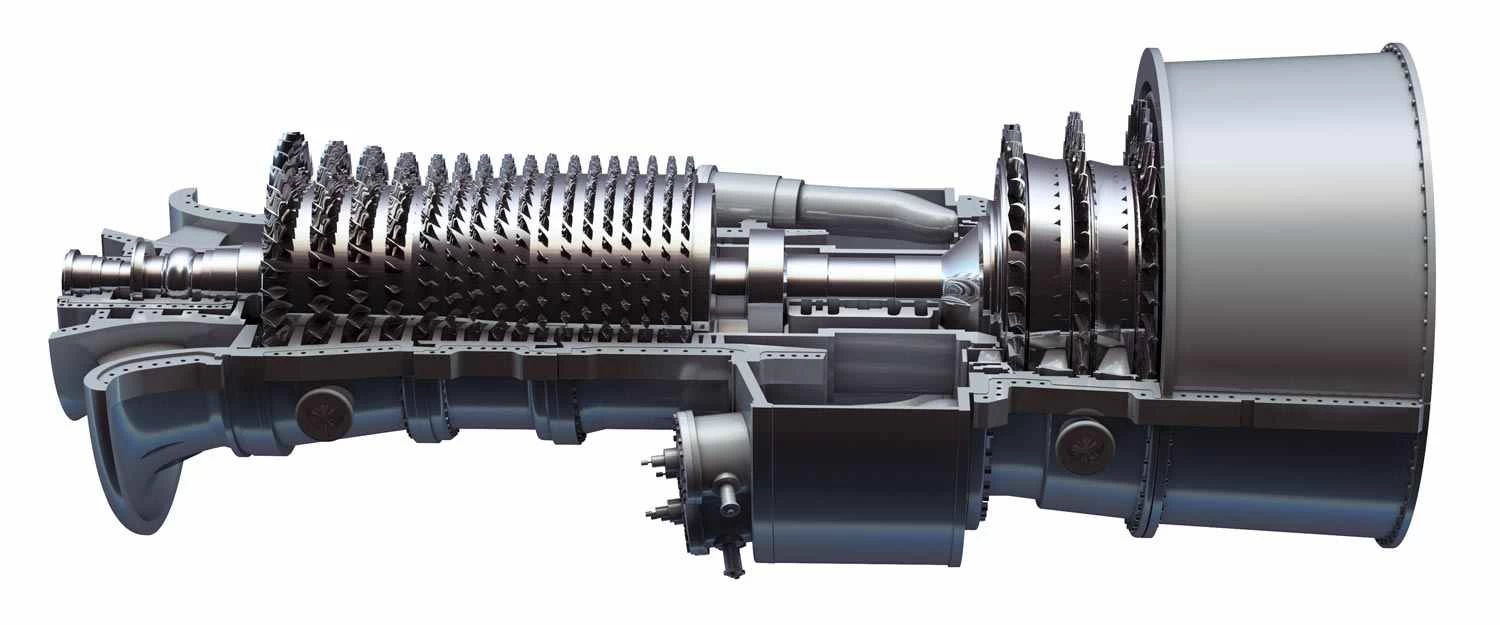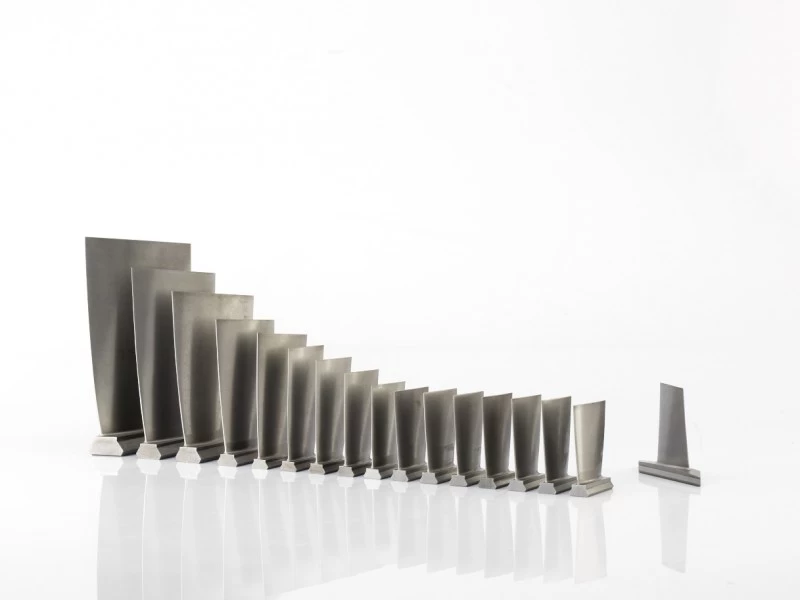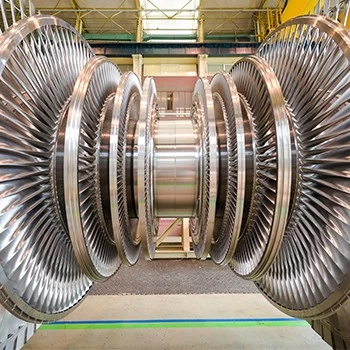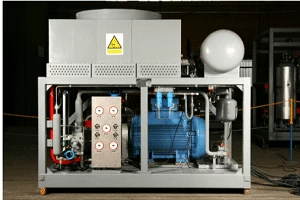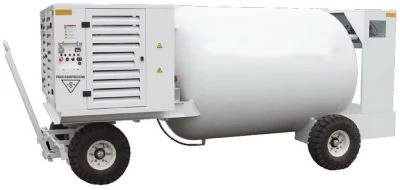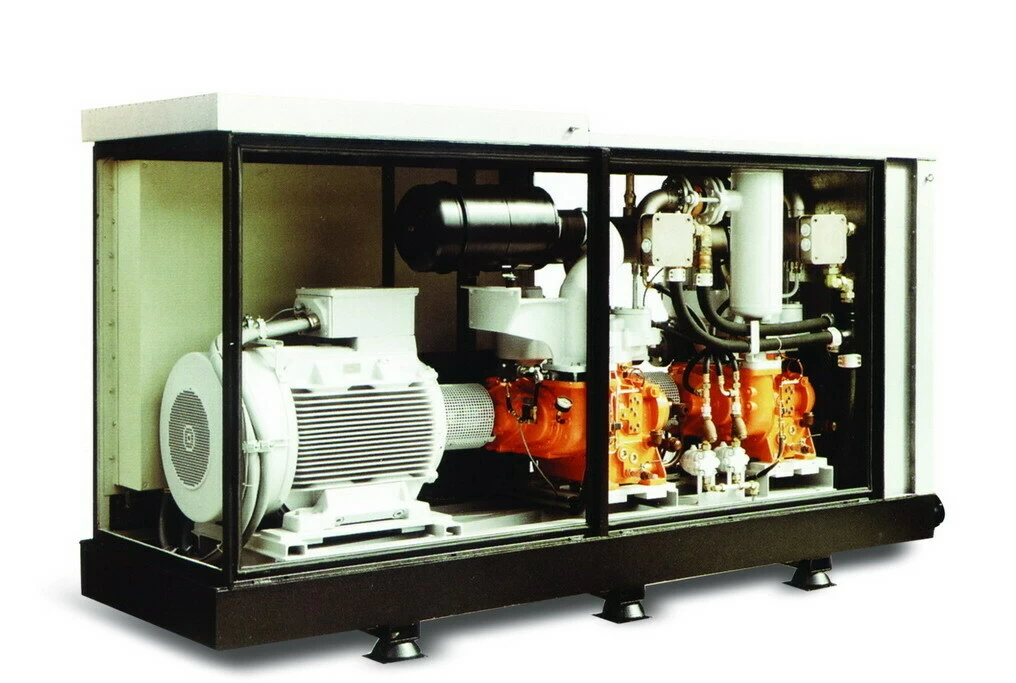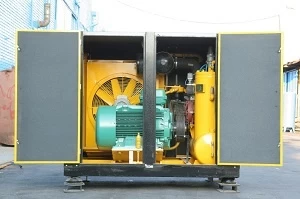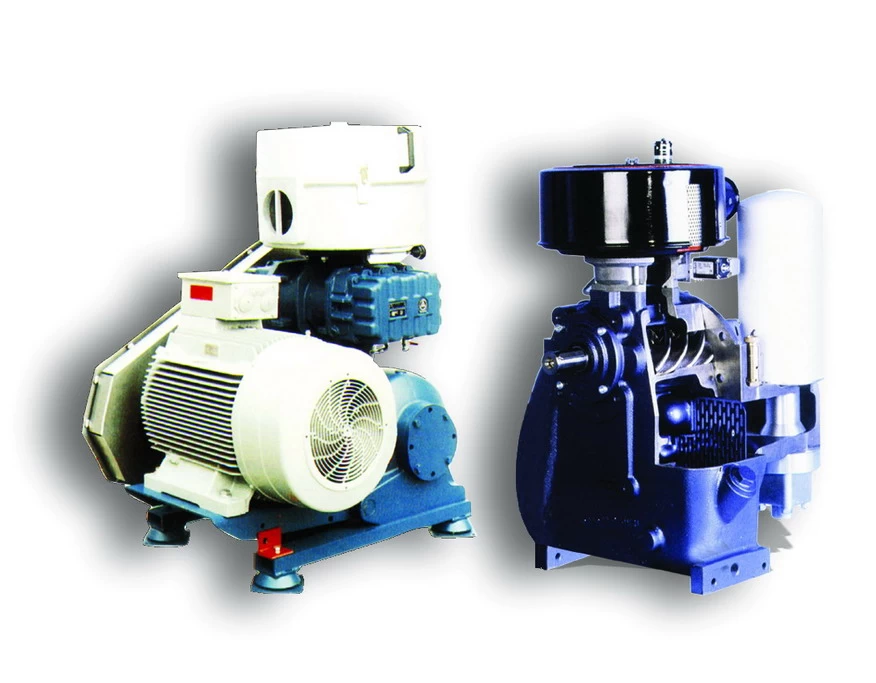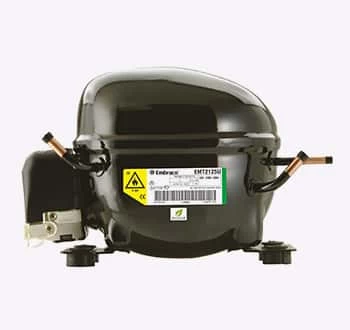Compressor
A compressor is a mechanical device used to reduce the volume of a gas or fluid by increasing its pressure. It is widely employed in various industries and applications, ranging from air conditioning and refrigeration systems to manufacturing processes and power generation.
The primary function of a compressor is to take in a low-pressure gas or fluid and compress it to a higher pressure, resulting in a reduction in volume. This increase in pressure is achieved by reducing the volume of the gas or fluid, which causes the molecules to come closer together and exert greater force on the walls of the compressor chamber.
Compressors come in different types and designs, each suited for specific applications and operating conditions. Some commonly used compressor types include reciprocating compressors, rotary screw compressors, centrifugal compressors, and scroll compressors. Each type has its own unique working principle and advantages, allowing them to be used in a wide range of industrial and commercial settings.
Reciprocating compressors use a piston-cylinder arrangement to compress the gas or fluid. As the piston moves back and forth within the cylinder, it draws in the gas on the suction stroke and then compresses it on the compression stroke. This type of compressor is known for its high efficiency and ability to handle high-pressure ratios.
Rotary screw compressors consist of two interlocking helical rotors that compress the gas or fluid as they rotate. These compressors are known for their continuous operation, high capacity, and reliability. They are widely used in applications requiring a constant supply of compressed air, such as industrial manufacturing and construction sites.
Centrifugal compressors work on the principle of centrifugal force. They use a high-speed rotating impeller to accelerate the gas or fluid and convert its kinetic energy into pressure energy. These compressors are particularly suitable for applications requiring large volumes of gas at relatively low pressures.
Scroll compressors use two intermeshing spiral-shaped scrolls to compress the gas or fluid. As the scrolls move, the gas is trapped and progressively compressed. Scroll compressors are known for their quiet operation, compact size, and high efficiency. They are commonly used in residential and commercial air conditioning systems.
Compressors play a vital role in various industries. In air conditioning and refrigeration systems, compressors are used to circulate and compress the refrigerant, allowing for heat exchange and cooling. In manufacturing processes, compressors are employed to power pneumatic tools, control systems, and provide compressed air for various operations. They are also used in oil and gas production, power generation, and transportation systems.
Efficiency, reliability, and proper maintenance are crucial factors in the operation of compressors. Regular maintenance, including lubrication, cleaning, and inspection, helps ensure optimal performance and prolongs the lifespan of the compressor. Proper sizing and selection of a compressor based on the specific application requirements are also essential for achieving efficient and cost-effective operation.

In conclusion, compressors are essential devices used in a wide range of industries to compress gases or fluids, increasing their pressure and reducing their volume. With various types and designs available, compressors provide efficient and reliable solutions for applications requiring compressed air or fluid.
Compressors are used in a wide range of industries due to their ability to provide compressed air or fluid for various applications. Some of the industries where compressors are commonly employed include:
1. Manufacturing: Compressed air is extensively used in manufacturing processes for powering pneumatic tools, controlling machinery, and operating production lines. It is utilized in applications such as assembly, packaging, machine tools, painting, and material handling.
2. Oil and Gas: Compressors play a crucial role in the oil and gas industry for activities such as gas gathering, wellhead compression, pipeline transmission, and natural gas processing. They are used to compress and transport natural gas, enhance oil recovery, and separate hydrocarbon mixtures.
3. Chemical and Petrochemical: Compressors are vital in chemical and petrochemical plants for processes like refining, cracking, compression of gases, and storage. They are used to compress various gases, such as hydrogen, nitrogen, and compressed air, which are essential for chemical reactions and manufacturing operations.
4. Power Generation: Compressors are utilized in power plants to compress air for combustion in gas turbines. They also play a role in cooling and conditioning systems, as well as in the compression of various fluids in the generation of electricity.
5. HVAC and Refrigeration: Compressors are integral components in heating, ventilation, air conditioning, and refrigeration systems. They compress and circulate refrigerant gases, enabling heat exchange and cooling in residential, commercial, and industrial settings.
6. Aerospace: Compressors are used in aircraft engines and aviation systems to compress and deliver air for combustion, as well as to pressurize and control cabin environments. They are critical for the functioning of jet engines and other aviation equipment.
7. Mining and Construction: Compressed air is widely employed in mining and construction operations. It powers pneumatic tools like drills, jackhammers, and pumps, assisting in excavation, rock drilling, tunneling, and material handling.
8. Food and Beverage: Compressed air is utilized in the food and beverage industry for processes such as pneumatic conveying, packaging, bottling, and canning. It helps in the movement of food products, controls machinery, and provides a clean and controlled environment.
9. Pharmaceuticals: Compressed air is essential in pharmaceutical manufacturing for processes like fluid bed drying, tablet coating, and packaging. It is used for cleanroom environments, as well as for pneumatic conveying and controlling machinery.
10. Automotive: Compressed air is utilized in automotive manufacturing plants for various applications, including painting, assembly-line tools, pneumatic actuators, and tire inflation.

These are just a few examples, and compressors find applications in many other industries as well. The versatility and reliability of compressors make them indispensable for numerous industrial processes and operations.


FAQs
What are the different types of compressors and how do they differ in terms of their working principles and applications?
There are four main types of compressors: reciprocating, rotary screw, centrifugal, and scroll compressors. They differ in their working principles and applications. Reciprocating compressors use pistons, rotary screw compressors use interlocking helical rotors, centrifugal compressors use a high-speed rotating impeller, and scroll compressors use intermeshing scrolls. Each type is suited for specific uses and conditions.
How does regular maintenance and proper sizing impact the efficiency and lifespan of a compressor?
Regular maintenance and proper sizing contribute to improved efficiency and extended lifespan of a compressor.
What are the primary uses of compressors in the oil and gas industry, and how do they contribute to activities such as gas transmission and natural gas processing?
Compressors are used in the oil and gas industry for gas transmission, wellhead compression, pipeline transportation, and natural gas processing, enabling efficient movement and separation of gases.
How does compressed air play a vital role in manufacturing processes and what are some common applications of compressed air in industrial settings?
Compressed air is essential in manufacturing processes, powering pneumatic tools, controlling machinery, and facilitating operations such as assembly, packaging, painting, and material handling.
 +7929688-88-14
+7929688-88-14

 English
English
 Persian
Persian
 Russian
Russian
 Chinese
Chinese


 +7929688-88-14
+7929688-88-14

